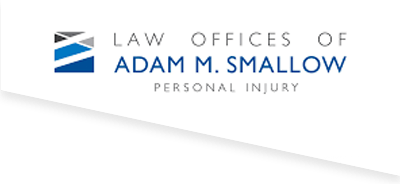Because there are different forms of SEO that vary depending on the types of results you desire, you need to make a calculated decision about how your business will derive traffic from search engines. For this reason, a framework for your SEO should be established and subsequent techniques applied. Keep in mind that changes may occur as your efforts evolve.
As a business owner, the end result will depend on your goals. The 6 Goals of SEO: Choosing the Right Ones for your Business, by Rand Fishkin, discusses common SEO goals. While this article was written in 2009, in our agency’s experience, it’s one of the few that remains extraordinarily relevant today. Now, these goals are even more nuanced and challenging.
You can do SEO for mindshare and branding, which develops how your brand is perceived online. SEO is also available for e-commerce. Raw traffic is yet another goal. How you do SEO depends on the end result that you have planned. If you want to capture traffic from the search engines, and you only deal with processing customer information (for example, if your business is a law firm), you may want to do SEO for raw traffic rather than e-commerce SEO. The possibilities for your SEO strategy are endless, depending on your goals and the type of SEO you want to perform.
The different forms of SEO available to every business owner include:
- Local SEO (for local businesses who want to capture foot traffic to their brick-and-mortar locations)
- Organic SEO (to take advantage of organic traffic from the search engines)
- International SEO (usually for larger corporations with a worldwide presence)
For the purposes of this section, we will discuss all three. If content, links, and technical SEO are considered standard SEO tactics, then tweaks to these tactics can help you achieve results for each type of SEO. The following includes general examples of how you might do SEO on a hypothetical website.
How to Do SEO For a Hypothetical Website
Organic SEO is the concept that most business owners think about when it comes to choosing which SEO to work with. They think of higher rankings and appearing on the first page of organic results. But sometimes businesses have goals that are more compatible with other types of SEO. With organic SEO, it’s all about content, links, and technical SEO. An integration of these fundamental techniques, which are tweaked by our professionals, is essential to achieving your organic SEO goals.
Local SEO is also a consideration if business owners think they may want to expand their local online presence. However, this form of SEO targets a different set of results: the local results. Gaining top position for these results requires a different set of tactics, but all of them revolve around content and links. For example, if you target “Irvine personal injury lawyers,” you would write a local page for Irvine that discusses your law firm within the context of Irvine. Then, your link building focus will change. Your local links might consist of the following:
- Local news sources
- Charitable organizations
- Local chambers of commerce
- Local events
- Local directories
- Scholarship .edu links (though the effectiveness of scholarship link building has declined in recent years, according to some)
Other attributes of successful local SEO include:
- Accuracy in your NAP (name, address, and phone number) information across local citations
- Locally-optimized and focused content
- Promotion to more local businesses
Law firm sites servicing a larger area would create pages for each city, targeting that city’s area for link building. Again, many of these links are only general examples, and we aren’t giving away our secrets! But, this is how local SEO is done on locally-focused websites.
International SEO includes yet another set of techniques for optimizing multi-lingual sites to achieve higher rankings.



